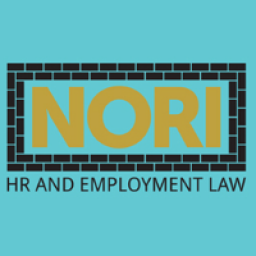For many across the UK, the light is finally shining at the end of the tunnel with the administration of the approved COVID-19 vaccines well underway in the UK.
However, some people have expressed their concerns over the risks associated with the vaccine due to the short space of time in which this has been created and the lack of long-term trial data. There are also concerns over the MRNA vaccine because it’s the first of its type to be released. Although this particular vaccine technology has been around for some time, it is the first one to complete all stages of clinical trials and to be licensed for use.
In light of the above, there will likely be some employees who do not intend to take the vaccination. In turn this could exacerbate the continuing impact on businesses in the UK that cannot resume ‘normal’ operations without alleviating the risks of transmission in other ways. It is imperative that all businesses continue to review risk assessments, which may include provision for those who have and have not been vaccinated and to share these with employees.
Many employers will be encouraging their employees to take the vaccine as soon as this becomes available – but how far can employers go in forcing this upon their employees and what are the associated risks?
Can employers force employees to take the Covid-19 vaccination?
The short answer is no. There is no legal right under which an employer has the power to force their employees to take the Covid-19 vaccine. The Government has confirmed at the date of writing that there are no plans to make immunisation mandatory across England and Wales.
However, employers are under a duty to alleviate the risk of harm within the workplace under the Health and Safety at Work Act 1974, which can be demonstrated by up to date Covid-19 risk assessments. Employers may therefore wish to revisit their risk assessments to take into account the possibility of immunisation against the threat of coronavirus.
By clearly communicating these risk assessments and any strategies, policies and procedures in place to resume ‘normal’ operations as soon as possible, employers can certainly encourage employees to consider taking the vaccination when available to them.
What action could be taken against employees who refuse to take the vaccination?
In some very limited circumstances, employers might consider taking action against those who refuse to take the vaccination on the basis that it is considered to be a ‘reasonable management instruction’. However, this approach is not without risk for the reasons outlined below.
- Employers who can demonstrate a robust rationale for why their employees must be vaccinated in order to conduct their role - for example, in hospitals and care homes where the risk of transmission and the impact of an outbreak is high - may have an argument under Some Other Substantial Reason (SOSR) if they were to subsequently take action against employees who refuse to comply. This is of course an argument yet to be tested in Tribunal and may not happen for a number of years and will turn on the individual merits of each case.
- Only an employee who unreasonably refuses to be vaccinated could be fairly dismissed. There must be an opportunity for the employee to set out their argument for the refusal. The employer will also need to consider the reasonableness of the decision as whether a fair dismissal can take place is extremely fact sensitive.
- Before a dismissal takes place, employers will also need to consider whether any changes or adjustments can be made as an alternative to dismissal, for example redeployment into an alternative role where the risk of Covid-19 is not a significant.
Given the fact specific nature of these issues, we strongly recommend that legal advice is sought before any action is taken in response to an employee who is refusing vaccination. Are there any discrimination risks associated with vaccination?
It is important for employers to listen and consider the reasons behind each employee’s decision not to take the vaccine. Some may refuse on the basis of their fear and concerns over the vaccine which would not be likely to fall under one of the nine protected characteristics under the Equality Act 2010.
That said, employers should look out for reasons connected with or arising out of a protected characteristic which could give rise to a claim. For example:
- Employees who have been advised or do not consider it safe to take the vaccine as a result of an underlying medical condition, which could amount to a disability;
- Pregnant employees or employees trying to get pregnant who have been advised not to take the vaccine or do not consider it safe to take the vaccine. At the time of writing the NHS has suggested that further evidence is needed in regards to the safety of the vaccine in these circumstances;
- Employees who are concerned about the ingredients of the vaccine that may go against their religion or beliefs. At the time of writing, the NHS has advised that the two approved vaccines do not contain any animal products or eggs, but this could change with future approved vaccines;
- Employees who argue that is against their philosophical belief which could include those who are part of the anti-vaccination movement.
The above list of examples is not exhaustive and is based on foreseeable arguments that could be raised by employees based on the nine protected characteristics under the Equality Act 2010. Employers may have a defence where they can demonstrate that the discrimination is a proportionate means of achieving a legitimate aim, which will depend on how critical the vaccine is to the operation of the business.
If you have any further questions about vaccination or Covid-19 generally please contact a member of our Employment Team.
 Brabners LLP
Brabners LLP







